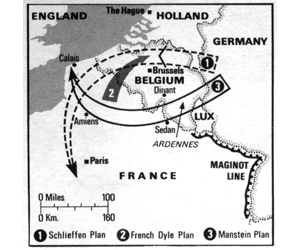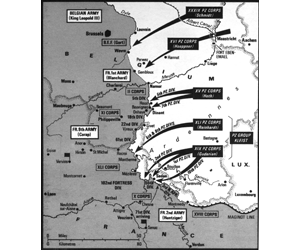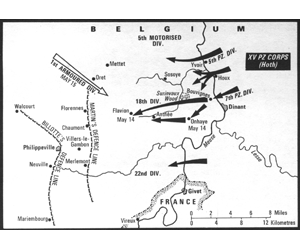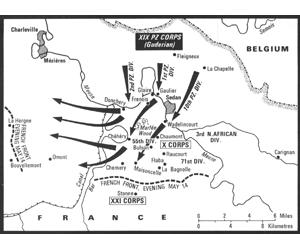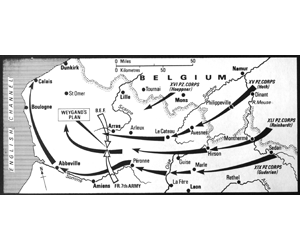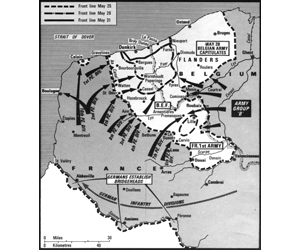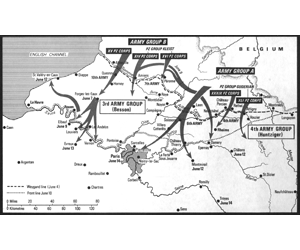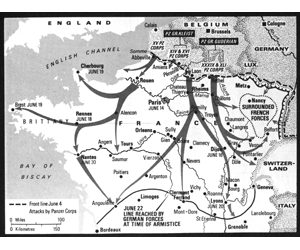Maps of the Blitzkrieg 1939-40
French and German Plans 1940
Allied military plans expected the German armed forces to strike using a variant of the Schlieffen Plan used in the First World War. The French Dyle Plan intended to meet the German offensive in Belgium. The Germans, however, adopted a plan attributed to Erich von Manstein that placed the weight of the attack at the center of the front and thus anticipated the French plan.
Battle of France: May 12-13, 1940
The armored weight of the German attack on France struck westward in the Ardennes region, in the weakly held center of the Allied front. This was an unanticipated move and it led to a serious crisis for the Allied armies and leadership.
Battle of France, Dinant: May 14-15, 1940
General Hoth's 15th Panzer Corps broke through the French defensive line at Dinant. The French 1st Armored Division counterattacked on May 15th, engaging General Rommel's 7th Panzer Division, but to no avail.
Battle of France, Sedan: May 14, 1940
The panzer divisions of General Guderian's 19th Panzer Corps broke through French defenses at Sedan and pressed forward as rapidly as possible to prevent the French armed forces from reforming a new defensive line.
Battle of France: May 14-24, 1940
After breaking through the weakly held Ardennes region of the Allied line, the German panzer corps raced to the English Channel.
Battle of France, Dunkirk: May 25-31, 1940
German armed forces pressed the Allied armies trapped in the north, from south and east, into the English Channel. Meanwhile, German infantry divisions reinforced the southern flank of the the German penetration.
Battle of France: June 4-14, 1940
Once the Allied armed forces in the north were eliminated, German armed forces regrouped and attacked southward, breaking through the Weygand Line the French had built up.
Battle of France: June 4-22, 1940
German armored forces continued to press their attack southward until the Franco-German Armistice was signed on June 22, 1940.
Copyright © 2018 Ralph Zuljan

